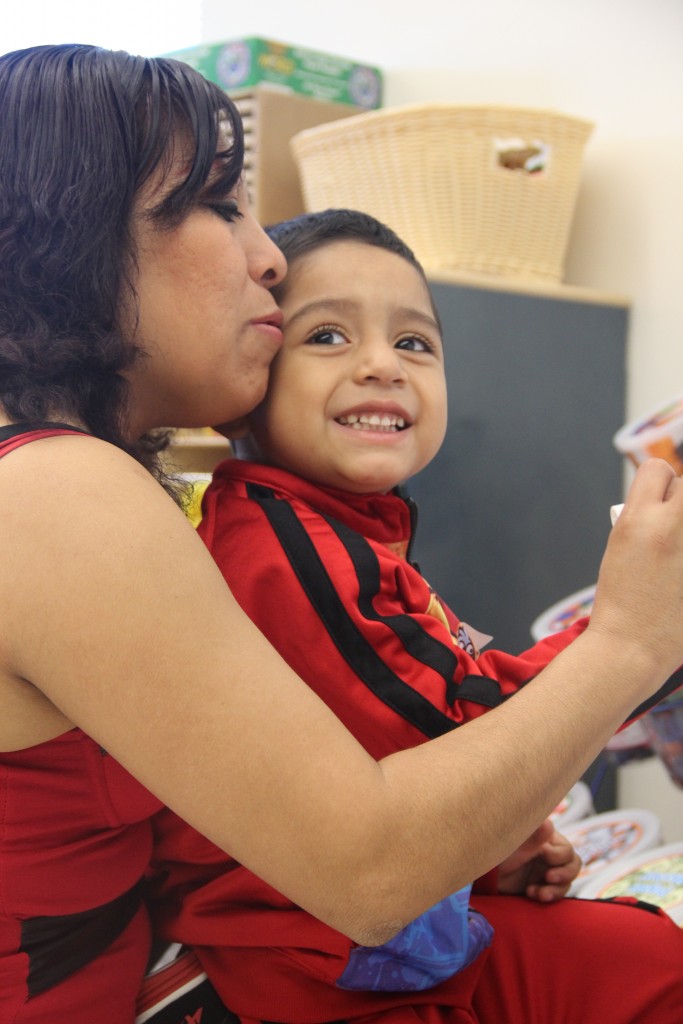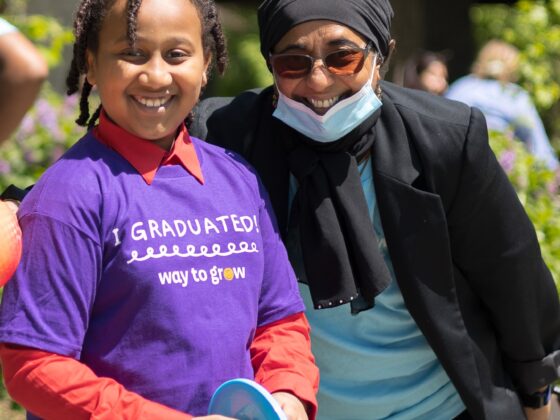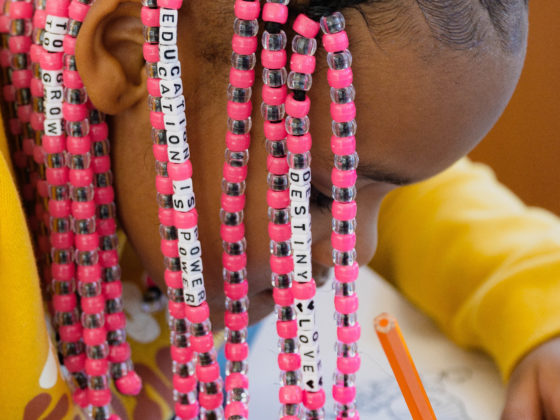 Sixty-nine percent (69%) of Way to Grow participants speak a primary language other than English in the home. In Minneapolis Public Schools overall, twenty-five percent (25%) of students are English Learners[1]. Native language skills, though often overlooked as an educational resource, are just as important to foster as ever. Growing evidence supports that strong home language literacy skills benefit English Learners’ overall academic success, serving as a prerequisite to success in school and life. Not only does bilingualism aid in the development of cognitive advantages such as problem solving and critical thinking, a positive relationship has also been shown between bilingual proficiency and achievement in math and reading[2].
Sixty-nine percent (69%) of Way to Grow participants speak a primary language other than English in the home. In Minneapolis Public Schools overall, twenty-five percent (25%) of students are English Learners[1]. Native language skills, though often overlooked as an educational resource, are just as important to foster as ever. Growing evidence supports that strong home language literacy skills benefit English Learners’ overall academic success, serving as a prerequisite to success in school and life. Not only does bilingualism aid in the development of cognitive advantages such as problem solving and critical thinking, a positive relationship has also been shown between bilingual proficiency and achievement in math and reading[2].
Research suggests children educated initially in their home language learn a second language more proficiently and achieve more academic success than those who have not had such a solid foundation. Once students have built basic literacy skills in their home language, they will be able to apply those skills to the new language. It is also often times easier for children to reach an understanding of the complex mechanics behind reading and writing when explained in the language they are more comfortable with[3].
Fostering the home language and literacy development is not only greatly beneficial to children and families, but is also an invaluable gain for society as a whole; enhancing community cohesion and building acceptance and understanding of cultural diversity. Through language-to-language programming, Way to Grow fosters preservation of the home language while providing a space for English learning. One obstacle we often see our English Learner families faced with is having access to quality varieties of literature written in their home languages. Each of the families we work with have at least one goal in common: to read with their children each and every day. Lacking these resources, it can be challenging for our parents who are not yet fluent in English to find books they can read together with their children.
We have over 500 parents in need of native language books in Spanish, Hmong, Vietnamese, Somali and Arabic. You can help parents teach their children by purchasing bi-lingual or native language books. Some bi-lingual titles can be found here.
[1] Minnesota Report Card, 2014
[2] The Importance of Literacy in the Home Language:The View From Australia, Susana A. Eisenchlas, Andrea C. Schalley, Diana Guillemin, 2013
[3] Bilingualism in development: Language, literacy, and cognition, Ellen Bialystok, 2001




